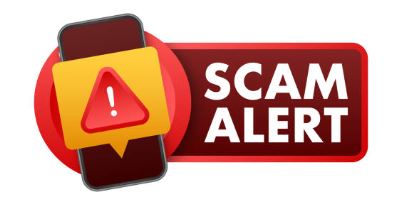Protect Your Holiday Generosity: How to Spot and Avoid Charity Scams
What to look out for

Article Highlights:
- · Holiday Fraudsters
- Understanding Charity Scams
- Warning Signs of Charity Scams
- Steps to Protect Yourself
- What to Do If You Suspect a Scam
The holiday season is a time of joy, gratitude, and giving. As people reflect on their blessings, many feel compelled to give back to their communities and support charitable causes. Unfortunately, this season of goodwill also attracts scammers who prey on the generosity of others. These fraudsters exploit the spirit of giving by creating fake charities or misrepresenting legitimate ones, ultimately diverting funds away from those in need. To ensure your donations make a positive impact, it's crucial to be aware of common charity scams and take steps to protect yourself.
Understanding Charity Scams
Charity scams can take many forms, but they all share a common goal: to deceive donors into giving money to fraudulent organizations which the swindlers keep for themselves. Scammers often use emotional appeals, claiming to support causes like disaster relief, medical research, or helping children and veterans. They may contact potential donors through phone calls, emails, social media, or even in person.
One common tactic is to create a fake charity with a name like a well-known organization. This can easily confuse donors who believe they are contributing to a reputable cause. Scammers may also impersonate legitimate charities, using their logos and branding to appear credible. In some cases, they may even set up fake websites or social media pages to solicit donations.
Warning Signs of Charity Scams
To protect yourself from charity scams, it's important to recognize the warning signs. Here are some red flags to watch out for:
- Pressure to Donate Immediately: Scammers often create a sense of urgency, pressuring you to donate on the spot. Legitimate charities will give you time to research and consider your donation.
- Lack of Information: Be wary of organizations that provide little information about their mission, programs, or how donations are used. A legitimate charity will be transparent about its operations and financials.
- Unsolicited Contact: If you receive an unexpected call, email, or message from a charity you don't recognize, be cautious. Scammers often use unsolicited contact to reach potential victims.
- Requests for Cash or Wire Transfers: Legitimate charities typically accept donations via check, credit card, or secure online platforms. Be suspicious of requests for cash, gift cards, or wire transfers, as these methods are difficult to trace.
- Vague or Emotional Appeals: Scammers often use emotional stories to tug at your heartstrings without providing specific details about how your donation will be used.
- No Proof of Tax-Exempt Status: In the United States, legitimate charities are registered with the IRS and have a tax-exempt status. You can verify this by checking the IRS's online database of exempt organizations.
Steps to Protect Yourself
To ensure your charitable contributions go to legitimate causes, follow these steps:
- Research the Charity: Before donating, research the organization thoroughly. Check their website, read reviews, and look for news articles or reports about their work. Websites like Charity Navigator, GuideStar, and the Better Business Bureau's Wise Giving Alliance can provide valuable information about a charity's legitimacy and financial health.
- Verify Their Status: Use the IRS's online tool to verify the charity's tax-exempt status. This ensures that your donation is tax-deductible, and that the organization is recognized by the government.
- Ask Questions: Don't hesitate to ask the charity for more information about their programs, how donations are used, and their financials. A legitimate organization will be happy to provide this information.
- Be Cautious with Personal Information: Protect your personal and financial information. Avoid giving out your Social Security number, bank account details, or credit card information unless you are certain the charity is legitimate.
- Donate Directly: Whenever possible, donate directly through the charity's official website or by sending a check to their verified address. This reduces the risk of your donation being intercepted by scammers.
- Keep Records: Maintain records of your donations, including receipts, emails, and any correspondence with the charity. This documentation can be useful for tax purposes and in case of any disputes.
What to Do If You Suspect a Scam
If you suspect you've encountered a charity scam, take action immediately:
- Report the Scam: Contact your local law enforcement agency and report the scam to the Federal Trade Commission (FTC) and the Better Business Bureau (BBB). This helps authorities track and shut down fraudulent operations.
- Notify Your Bank: If you've given out financial information, contact your bank or credit card company to alert them of potential fraud. They can help you monitor your accounts for suspicious activity.
- Spread the Word: Warn friends and family about the scam to prevent others from falling victim. Sharing your experience can help raise awareness and protect others.
The holiday season is a time for giving, but it's essential to remain vigilant against charity scams. By recognizing the warning signs and taking steps to verify the legitimacy of a charity, you can ensure your donations make a meaningful impact. Remember, a little research goes a long way in protecting your generosity and supporting the causes you care about. Stay informed, stay cautious, and continue to spread kindness and goodwill during this festive season.
If you have questions, please contact this office.